What is your position with Ellipsis?
I’m a campus supervisor.
How long have you worked here?
I’ve worked at Ellipsis for about two years.
Have you had any other roles/jobs during your tenure with Ellipsis?
I was a youth care worker for about a year and a half before moving to my current role.
What drew you to work at Ellipsis?
My own experiences with the foster system led me to this line of work. I was in foster care along with my two younger brothers. I didn’t get to meet my dad before he died, and my mother was not able to provide what was needed to be a successful parent.
I was only 8 when I went into foster care, and I spent close to nine years in the foster care system. My brothers and I have maintained good relationships despite the circumstances. I remember how terrible, confused and angry I felt when my life was being controlled by things I couldn’t understand.
Before working here, I had the goal to help people who were once in my situation, so I reached out to a contact from the Iowa Department of Health and Human Services I had worked with while in the system. He recommended that I get involved with Ellipsis.
Overall, I have a deep personal motivation to try to help these youth, and I see reflections of myself in their struggles. I try to demonstrate to them ways that they can benefit themselves with goals and good decision-making while empathizing with their individual situations.
Can you recall a moment (during your career with Ellipsis) when you felt like you were in exactly the right place, doing exactly what you should be doing? What was that like?
I feel this most days that I work. Having conversations with youth and making those interpersonal connections is one of the best parts of this job. One thing I feel that I am highly successful with is being able to have those high-intensity conversations with a youth in crisis and be able to help ground them back to their own potential.
What are some of the more challenging aspects of this job?
One of the hardest things that I find in this job is being able to disconnect from it in the off-hours. I find myself thinking about ways to improve some of the conversations that I have at my job daily while at home.
Another thing that’s difficult is becoming emotionally exhausted. Being in a position where you are constantly trying to improve the lives of people who are often in less fortunate circumstances can become overwhelming. It can be hard to keep the positivity and help as much as you can even in some of the worst situations I could imagine.
What are some of the rewarding aspects of the job?
Being able to nurture those healthy relationships and see improvements with the youth we work with is incredibly rewarding. When a youth makes the monumental shift in mentality from being fearful or defiant to wanting to develop themselves into the person they want to be and setting goals to become that person, it can be especially rewarding. Seeing the conversations and guidance you try to provide go into effect brings a great amount of fulfillment.
Why is it important to have residential programs in communities and qualified people working in them?
One of the biggest reasons these programs have to exist is to provide some type of opportunity to those who otherwise don’t have any opportunity. A lot of people advocate for second chances, but with a lot of the youth I work with, it seems they weren’t given a first chance.
The situations that surround them put difficult obstacles in front of them in the beginnings of their lives that they can only overcome with a lot of personal work and support. Ellipsis gives the opportunity to these youth to learn basic skills that are going to help teach them to take control over their own lives.
What is a misconception people may have about mental health treatment? How do you dispel that?
I’ve heard people say therapy doesn’t help. I disagree. I have connected with multiple therapists, and having a chance to discuss the things that can be too difficult to talk to anyone else about was very beneficial. Processing things that are easier to forget about than to talk about and releasing some of the burden of whatever you are feeling really does help people.
If there’s anything else you’d like to add, please feel free to do so!
This month, be grateful. Be grateful for the people around you, for the loved ones you have, for the place you live and the things you are privileged to do. Being grateful for those things is why Thanksgiving is one of my favorite holidays, and all the great food, of course!
